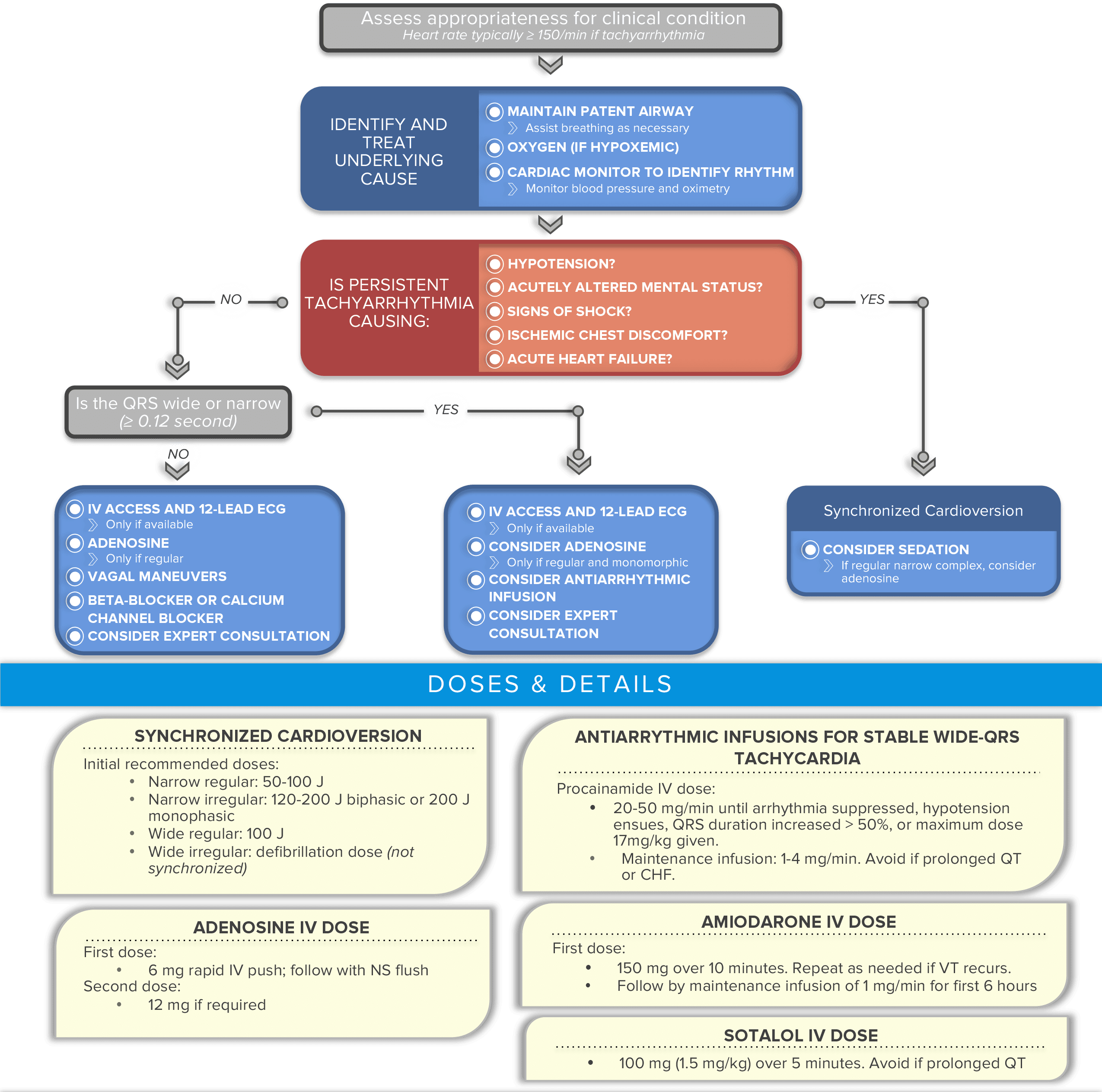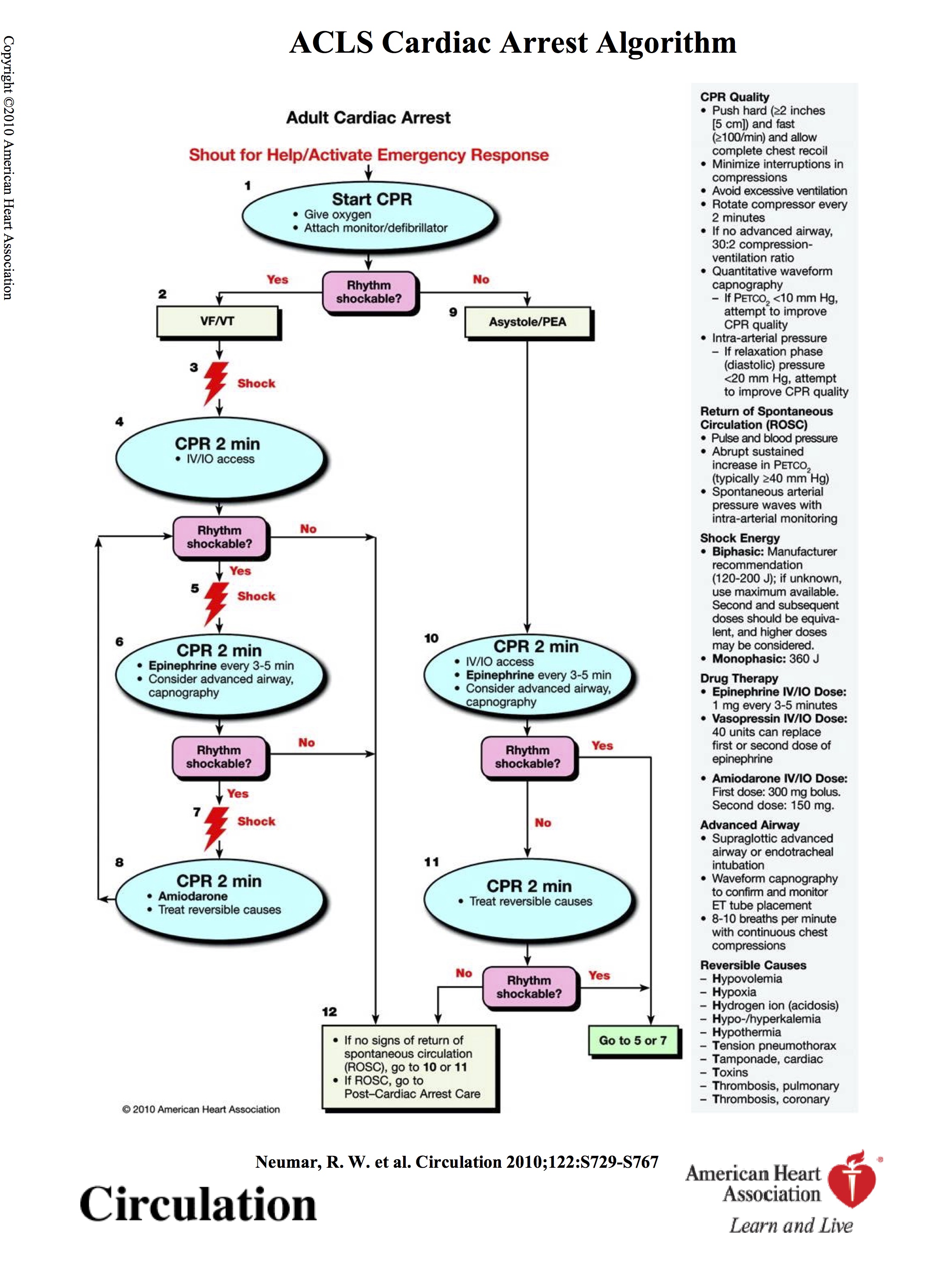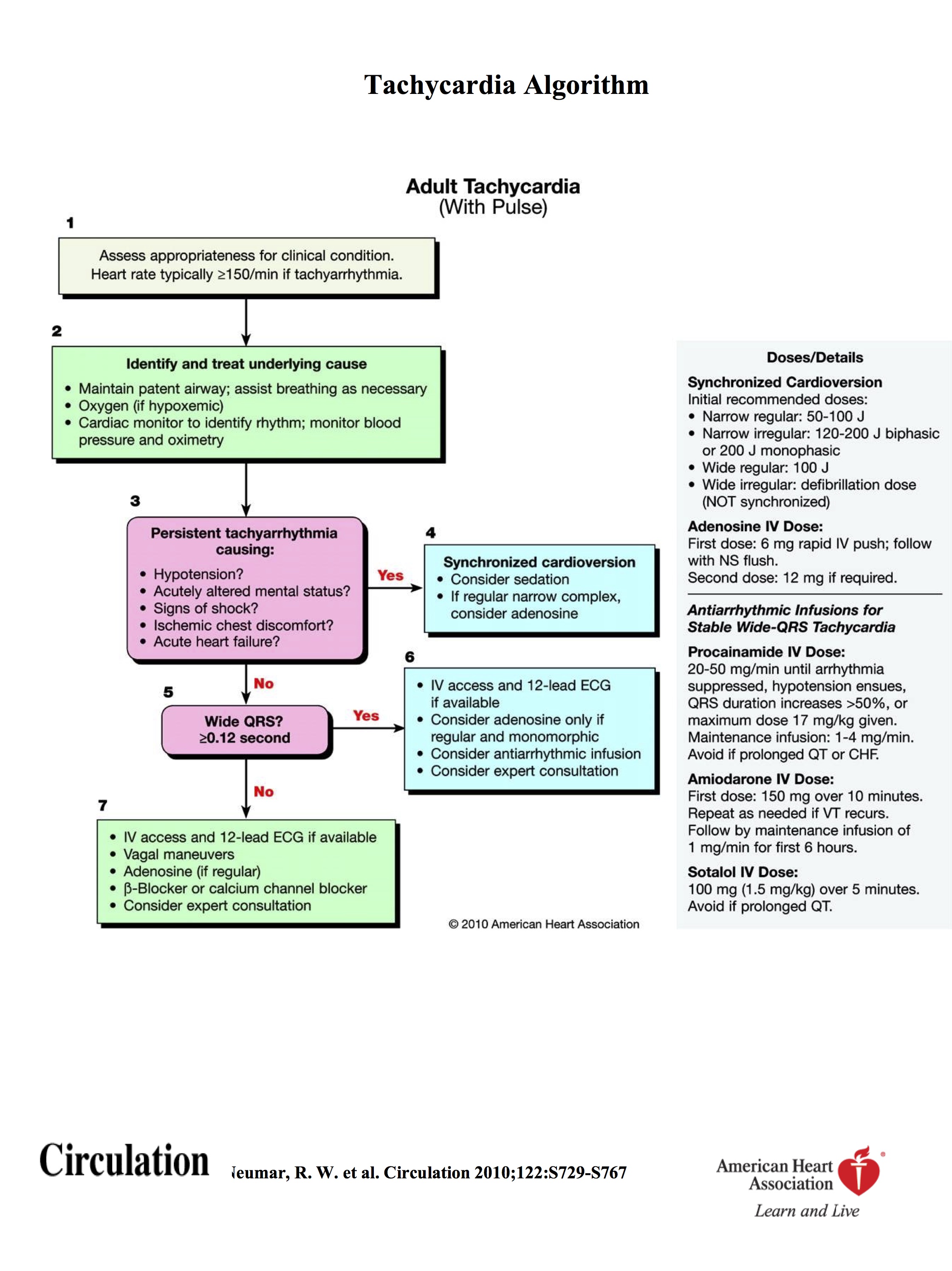ACLS Algorithms You Need To Know
 ACLS (Advanced Cardiovascular Life Support) algorithms are a set of protocols used in the management of cardiac emergencies. These algorithms provide healthcare professionals with a step-by-step guide on how to assess and treat various cardiac conditions.
ACLS (Advanced Cardiovascular Life Support) algorithms are a set of protocols used in the management of cardiac emergencies. These algorithms provide healthcare professionals with a step-by-step guide on how to assess and treat various cardiac conditions.
The 7 ACLS Algorithms You Absolutely Need to Know
 ACLS algorithms are designed to address specific cardiac rhythms and conditions. One of the most important algorithms is the one for tachycardia with a pulse. This algorithm guides healthcare providers on how to identify and treat patients with a rapid heart rate but still have a measurable pulse.
ACLS algorithms are designed to address specific cardiac rhythms and conditions. One of the most important algorithms is the one for tachycardia with a pulse. This algorithm guides healthcare providers on how to identify and treat patients with a rapid heart rate but still have a measurable pulse.
ACLS Algorithm

ACLS Pulseless Cardiac Arrest Algorithm For Ventricular Fibrillation
 Ventricular fibrillation is a life-threatening arrhythmia that can result in cardiac arrest. The ACLS algorithm for ventricular fibrillation provides a step-by-step guide on how to assess and treat patients in this critical condition.
Ventricular fibrillation is a life-threatening arrhythmia that can result in cardiac arrest. The ACLS algorithm for ventricular fibrillation provides a step-by-step guide on how to assess and treat patients in this critical condition.
Acls Algorithms | Images and Photos finder
 The ACLS algorithms cover a wide range of cardiac conditions. In addition to the algorithms for cardiac arrest and ventricular fibrillation, there are also algorithms for conditions such as asystole, pulseless electrical activity, and bradycardia.
The ACLS algorithms cover a wide range of cardiac conditions. In addition to the algorithms for cardiac arrest and ventricular fibrillation, there are also algorithms for conditions such as asystole, pulseless electrical activity, and bradycardia.
Acls Algorithms 2012 Pdf Wwwgatewaymultimedianet
 The ACLS algorithms serve as a guide for healthcare providers in the management of cardiac emergencies. These algorithms are regularly updated to reflect the latest evidence-based practices and guidelines.
The ACLS algorithms serve as a guide for healthcare providers in the management of cardiac emergencies. These algorithms are regularly updated to reflect the latest evidence-based practices and guidelines.
… ACLS algorithms are a crucial tool for healthcare providers who are involved in the management of cardiac emergencies. By following these algorithms, healthcare professionals can provide timely and effective interventions to improve patient outcomes.
It is important for healthcare professionals to have a thorough understanding of ACLS algorithms and be able to apply them confidently in emergency situations. Regular training and refresher courses can help ensure that healthcare providers are up to date with the latest guidelines and best practices.
By familiarizing themselves with the ACLS algorithms and staying updated on any changes or revisions, healthcare providers can enhance their ability to respond effectively to cardiac emergencies and save lives. These algorithms are designed to provide a structured approach to the management of cardiac conditions, offering healthcare professionals a roadmap to follow when faced with critical situations.
In conclusion, ACLS algorithms are a vital resource for healthcare professionals involved in the management of cardiac emergencies. By understanding and applying these algorithms, healthcare providers can provide high-quality care to patients experiencing cardiac conditions. Regular training and staying updated with the latest guidelines are crucial for ensuring optimal patient outcomes. Remember, prompt and effective intervention is key when it comes to saving lives in cardiac emergencies.